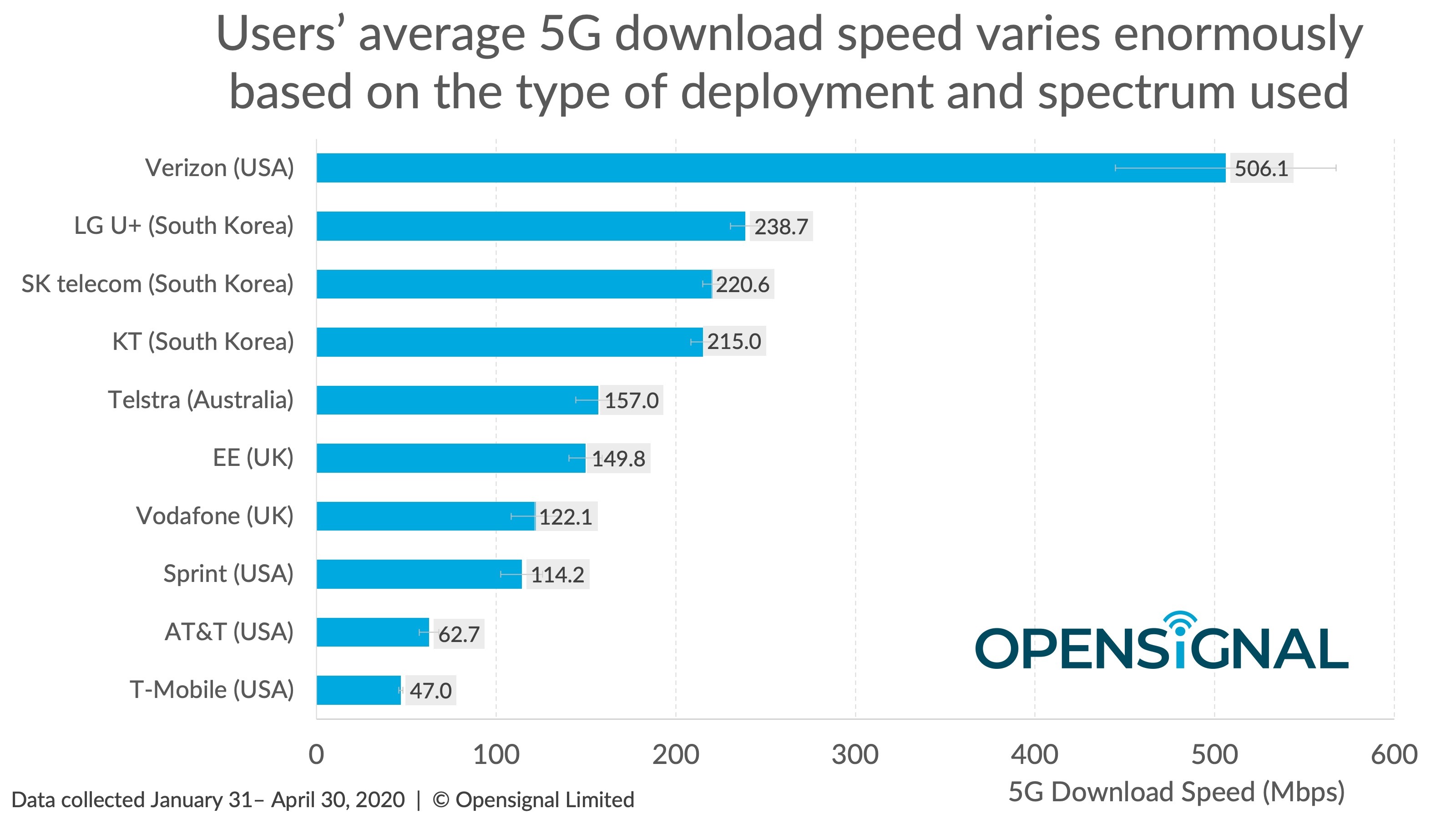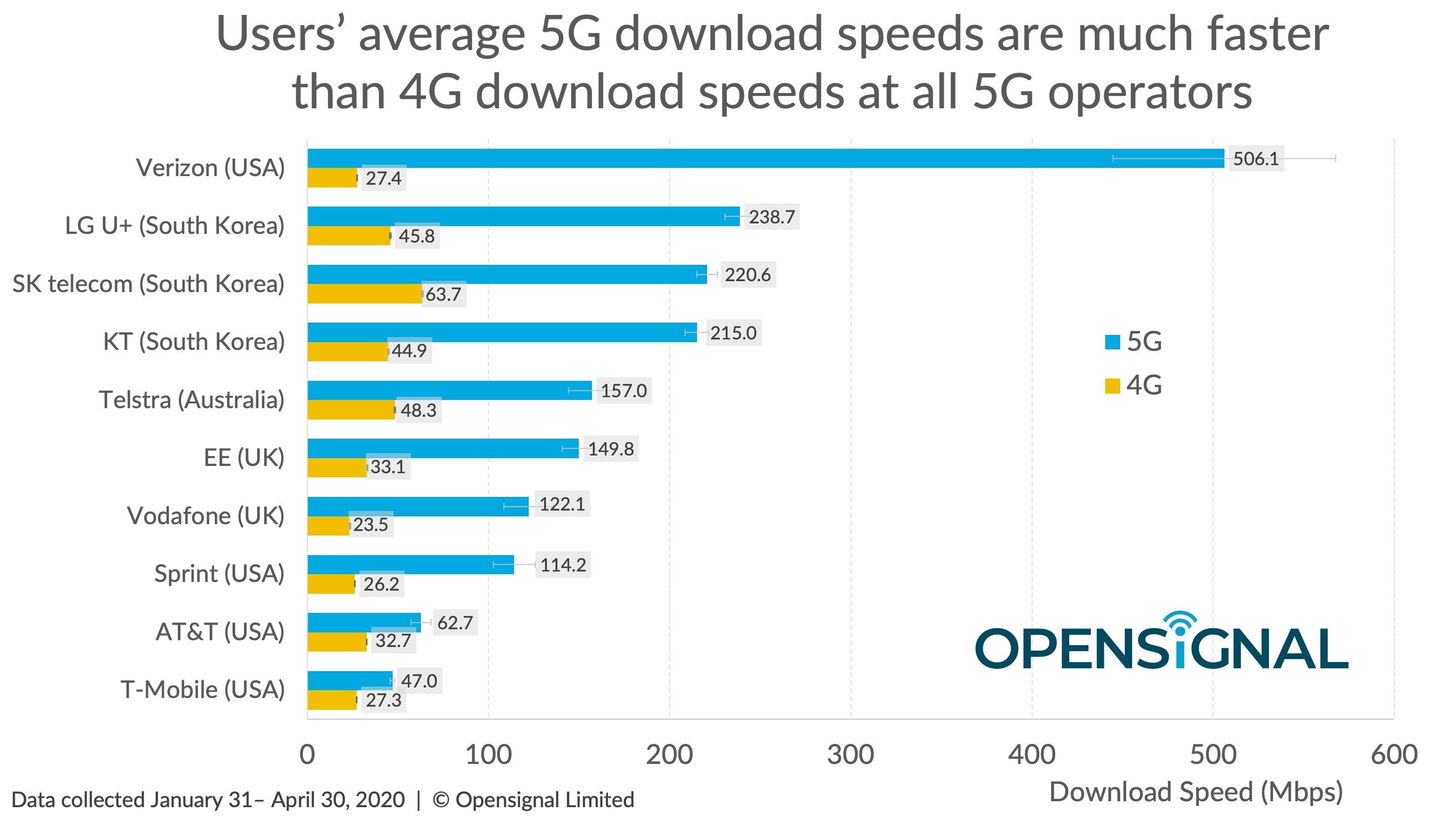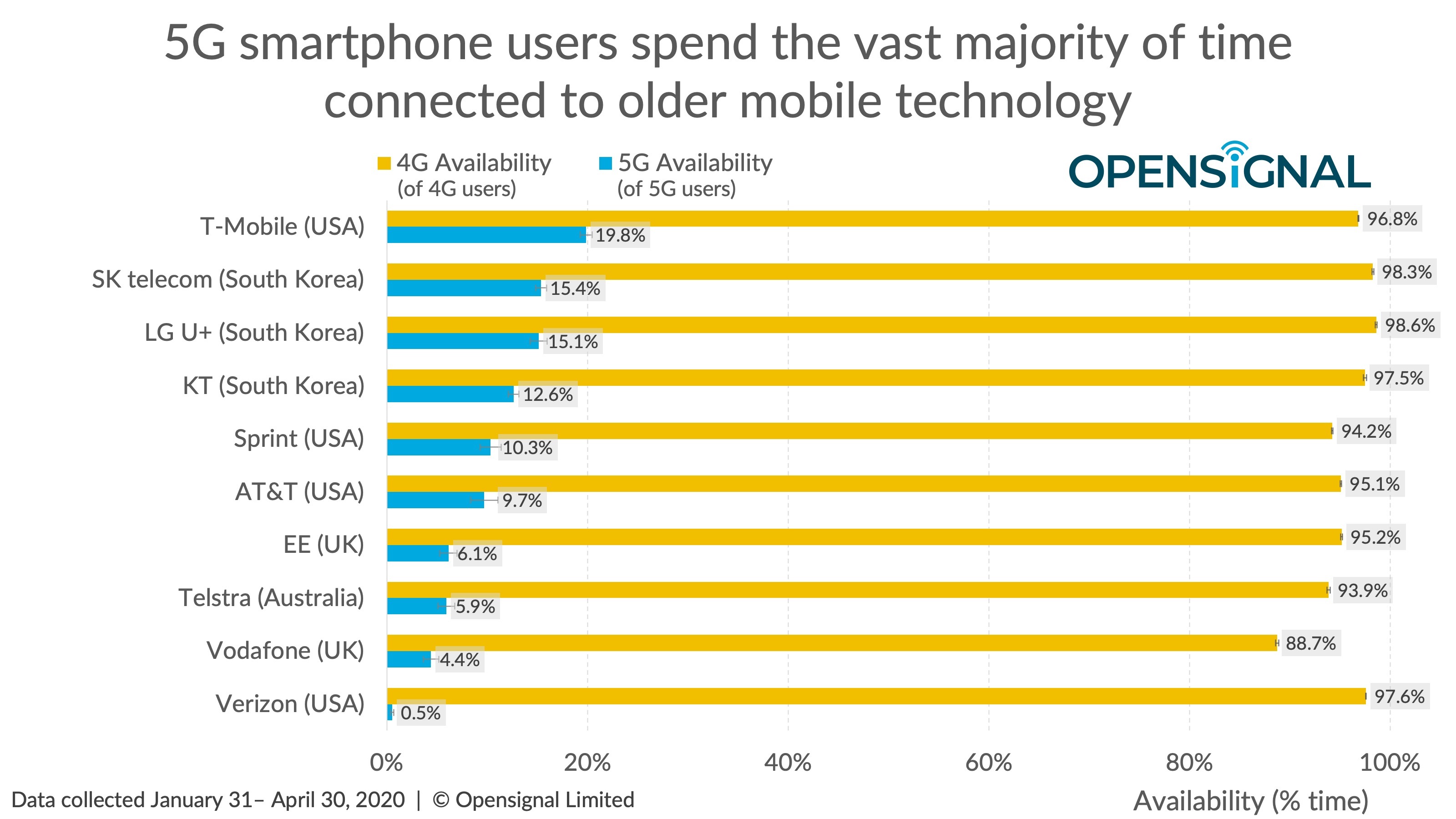Understanding the extent to which 5G improves the mobile experience is critical both for consumers considering upgrading to 5G and also for the mobile industry that’s planning how quickly to invest in 5G. Opensignal has looked at how the 5G experience compares in four countries — Australia, South Korea, the U.S. and the U.K. — across 10 5G operators that all launched 5G well over six months ago, says Ian Fogg, VP analysis at Opensignal.
This new analysis complements our recent look at how 5G compares with Wifi, and further examines the world one year after the first 5G launches in South Korea and the U.S. that offered 5G services to smartphone users.
In Opensignal’s latest 5G analysis we found all ten operators saw much faster speeds for their users on 5G compared with 4G, with speeds between 18.4 times and 1.7 times faster on 5G. However, average 5G download speeds also varied widely, ranging between 506.1 Mbps on Verizon down to 47 Mbps on T-Mobile US.
The time that users spent connected to 5G — 5G Availability — also varied greatly between operators, reaching a high of 19.8% of the time on T-Mobile US, indicating that while T-Mobile 5G speeds may not be the fastest, their users will experience the higher 5G speeds considerably more often than the users of other 5G operators.

On 5G Download Speed Experience, we saw differences based on the type of 5G spectrum each operator has used. Of the ten operators we analysed, Verizon is the only one to exclusively use mmWave spectrum and this is the main reason for the extremely high speeds our 5G users have observed on its network.
Similarly, the two operators here whose users had the slowest 5G speeds both primarily relied upon low-band spectrum re-purposed from 4G services — 600Mhz for T-Mobile US and 850Mhz for AT&T — which offers extremely good coverage but less capacity and slower average speeds. All the other operators relied on mid-band spectrum for their 5G services.
Although Australia’s Telstra, all three of South Korea’s operators, Sprint in the U.S. and the U.K.’s EE and Vodafone have all deployed 5G on mid-band spectrum, users’ speeds differed greatly from well over 200 Mbps on all three Korean operators, to 114.2 Mbps on Sprint.
In part, this speed difference is because of the amount of 5G spectrum available to deploy — wider channels are better, ideally 100Mhz in a single 5G band — but it’s also due to other differences in the networks such as the capacity of the onward connection from each cell site or the performance of each operator’s core network.
As the new T-Mobile combines the assets of Sprint, we expect to see the average 5G speed of new T-Mobile users rising as they benefit from the mid-band 5G spectrum which Sprint has deployed.

While the average 5G speed varies dramatically across these 5G operators, in every case the 5G Download Speed Experience is dramatically faster than 4G. The operator whose users experienced the 4G download speed, SK telecom, still saw 5G speeds 3.5 times faster.
Speed is far from the only important measure of the 5G experience. How much time users are able to enjoy that experience is equally important. There is little point in having the potential to enjoy 5G, if that 5G experience is not often available.
T-Mobile US users spent the most time connected to 5G globally, with a 5G Availability of 19.8%, closely followed by all three South Korean operators with 5G Availability ranging from 15.4% to 12.6%. South Korea continues to demonstrate not only tremendous 5G adoption, but a widely available and fast 5G experience. 4G continues to be important to users’ overall mobile experience because for now users have much higher availability on 4G, indicating that the mobile industry should look to accelerate 5G deployments so more people can enjoy the advantages of 5G more often.

The author is Ian Fogg, VP analysis at Opensignal.
Comment on this article below or via Twitter: @VanillaPlus OR @jcvplus






